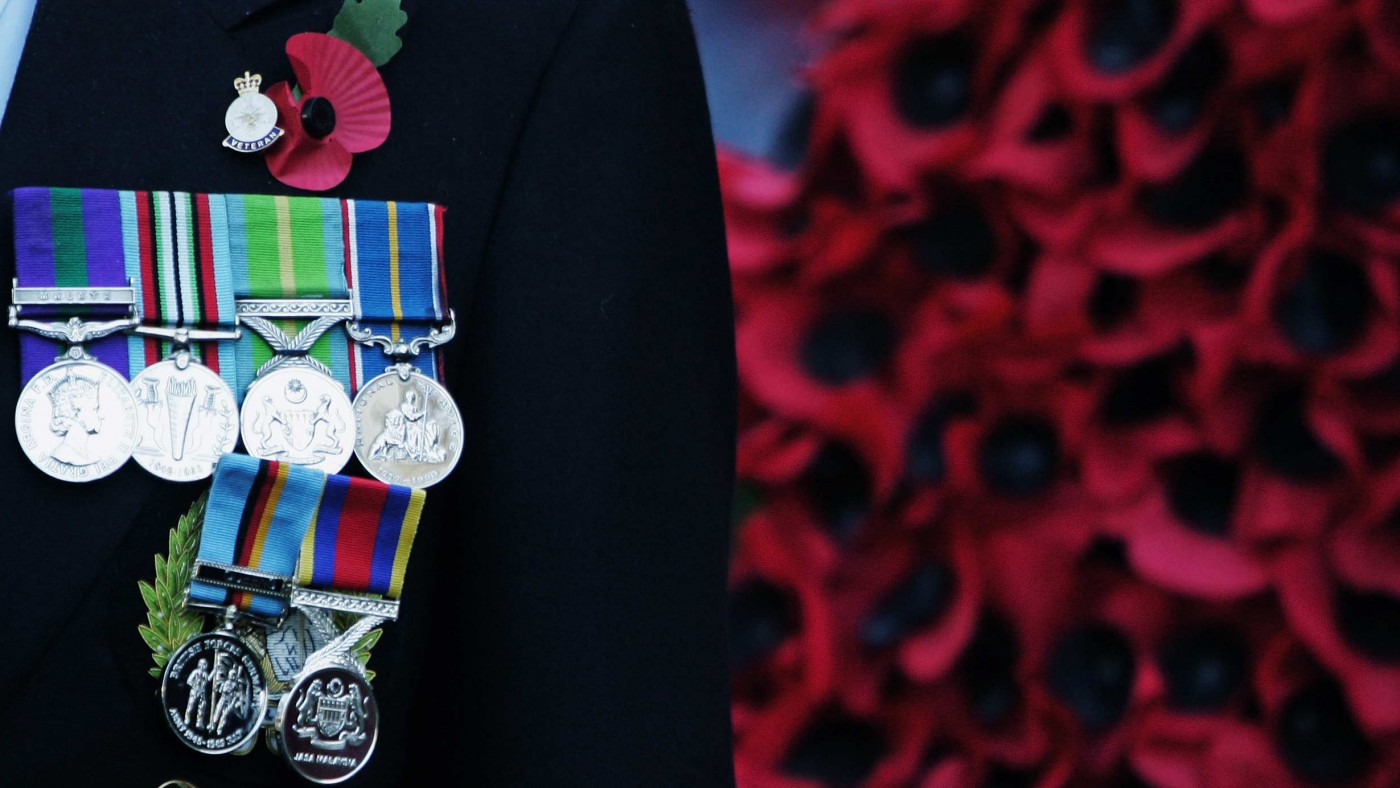First, an apology. Yesterday evening, on my way to dinner in London, after a day that seemed annoying at the time but was in the grand scheme of things vastly more comfortable than the days experienced by several billion people on this planet, I was looking at my phone as I waited for the train to arrive. A tweet popped up from the National, the pro-SNP tabloid published in Glasgow. It advertised a piece for Tuesday’s paper: “In tomorrow’s @ScotNational @kittycatboyd on why she won’t be wearing a red poppy.”
I sent a tweet in reply. Every year it gets earlier. Like the first cuckoo of Spring. Or the sacking of Premier League managers. So, I tweeted that this Cat Boyd tweet represented the appearance of the “1st idiot of the season,” meaning the first person to signal their supposed virtue by writing an article about why they refuse to wear a red poppy.
I emerged from dinner a few hours later to a torrent of tweets, some from people outraged that I had sent my own tweet and others saying that Cat Boyd is a disgrace, or something, for disrespecting the dead, and others shouting at both of us.
Who cares? I was annoyed, but I shouldn’t have phrased my tweet like that. Sorry, Cat. I should not have used the word idiot. I’m forever going on about the Nationalist left trying to shut down debate and stifle anyone who disagrees with their worldview, and I shouldn’t do the same.
But if my choice of words was poor, I am still appalled that the Nationalist left in Scotland and the hard left in England have such a serious downer on the red poppy. Why can’t they just embrace it, as men and women of the left, right and in-between did in the decades after the war? Do they hate the West and its heritage that much?
Cat thinks the poppy glorifies war, or rather says it is exploited by today’s politicians to justify and excuse modern wars they or their predecessors have started. That’s not even remotely true and the public is highly wary of any politician trying to make such capital from the poppy or wars that, anyway, are now deeply unpopular with voters. Her view also seems to be based on a misreading of the origins of the poppy and what it signifies.
The idea that most of us who wear the poppy are somehow celebrating war is 180 degrees wrong. It is simply a sign of remembrance offered in memory of those Britons who made extraordinary sacrifices defending freedom, often when they had little choice and were forced into a hopeless position by the mistakes, or good intentions, of others.
There are a few people who glory in war, but not many who are sane. I find the tales of sacrifice by individuals on the field moving, and the battles for supremacy among the master strategists such as my hero Alanbrooke fascinating much in the way that Shakespeare’s plays are fascinating.
That is not the same as celebrating the fact that these conflicts happened. You really would have to be an idiot to think that the the two world wars of the 20th century were a good idea. The First World War was a catastrophe for mankind, that ultimately destroyed possibly the greatest civilisation and culture in human history (19th century Germany) and wrecked Britain’s economy. Whether one thinks it started by accident or because of the aggression of the German militarist class and the stupidity of one very stupid Kaiser is immaterial when it comes to the red poppy. The British troops who lost their lives should be remembered and thanked, which is why we wear it. And whatever the causes, thank goodness the Allies won and Germany’s autocratic generals who wanted to dominate Europe lost.
If there is confusion about the precise causes of the First World War, there is less ambiguity about the Second World War. An inept and punishing Versailles peace treaty, economic mismanagement and naive idealism gone awry in the peace movement, created the conditions for a racial supremacist to take control of Germany and create a nightmare that eclipsed even the horrors of the First World War.
Perhaps you think what America has done in the field of foreign affairs and conflict since 1945 is deeply questionable or downright bad. Try a world instead in which the Nazis won, or the US failed to join the war in Europe and the Soviets occupied all of Germany, France and beyond.
There was no choice for Britain in 1939 other than to fight. Those who say now or said in the past – the historian, MP and diarist Alan Clark, for example – that it could have been avoided are poseurs, like undergraduate clever dicks endeavouring to show off and shock the tutor or their fellow students in a bar.
A dictator wanted to destroy all basic freedoms in Europe and beyond. He had to be beaten, and the vast majority of people in Britain understood that it must be done.
The Allied victory when it came in 1945 was hardly perfect or pure, especially considering the human cost and the role of the Soviets who did the bulk of the heavy lifting after a catastrophic misreading of Hitler. Nor was the victory made by one British political party, or by one politician. Both major parties in the UK were compromised by pacifism and appeasement pre-1939, which stemmed from an entirely understandable instinct to avoid a repeat of the horrors of the First World War. But they united, for the most part, along with the overwhelming majority of the population and huge numbers of service personnel to pull off an extraordinary triumph in the name of freedom. And thank goodness they did.
That being the case, the least we can do is wear the red poppy as a way of thanking them.


